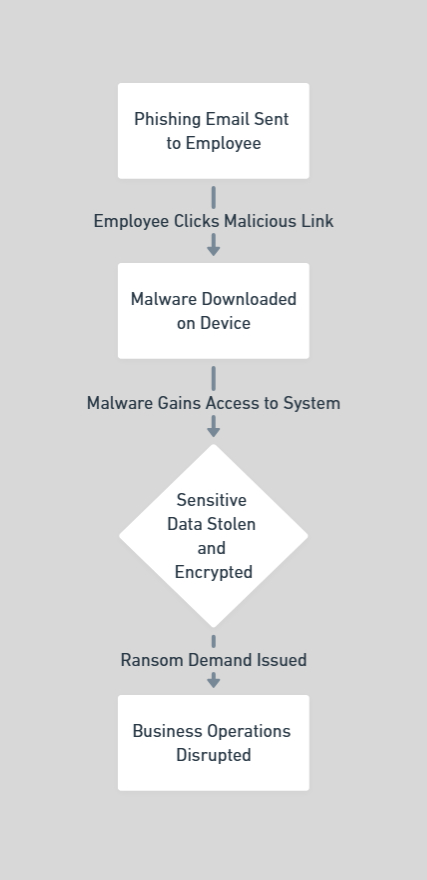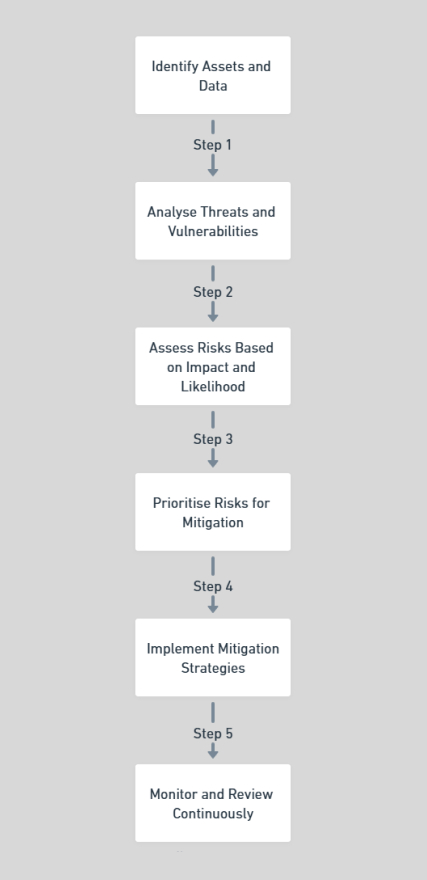




The rapidly evolving digital landscape has introduced unprecedented challenges for businesses seeking to protect their sensitive data and systems. Cybersecurity advisory services for businesses are no longer a luxury but a necessity in the face of advanced threats, intricate technologies, and evolving regulatory demands. For Australian businesses, the stakes are especially high. According to the IBM Security Report, the global average cost of a data breach in 2023 reached USD 4.45 million, with industries like finance and healthcare facing even greater risks.
This increasing complexity has left many organisations struggling to develop and maintain effective security strategies. Off-the-shelf solutions often fall short of addressing unique vulnerabilities, leaving businesses exposed to targeted attacks. For example, phishing and ransomware attacks remain prevalent in Australia, with the Australian Cyber Security Centre (ACSC) reporting over 76,000 cybercrime incidents in the past year, equivalent to one every seven minutes.
Expert advisory services have become essential to help businesses navigate these challenges. By simplifying complex cybersecurity processes, advisory professionals deliver tailored strategies that not only mitigate risks but also align with organisational goals. These services enable businesses to transition from reactive to proactive security postures, ensuring resilience and operational continuity in an increasingly uncertain environment.
Expert advisory services in cybersecurity provide organisations with tailored strategies to assess risks, design effective defences, and implement sustainable solutions. Unlike generic security tools, these services focus on the unique needs of each business, taking into account its operational structure, industry regulations, and specific threat landscape.
At their core, advisory services are designed to identify vulnerabilities and gaps in an organisation’s security framework. This includes analysing current defences, evaluating compliance with standards such as ISO 27001, NIST Cybersecurity Framework, and PCI-DSS, and recommending actionable improvements. For example, ISO 27001 focuses on creating a comprehensive information security management system, while the NIST framework emphasises risk-based practices, and PCI-DSS provides specific guidelines for safeguarding payment card data.
Expert advisors do not just recommend solutions; they also work closely with internal teams to ensure seamless integration with existing infrastructure and business processes. This holistic approach ensures that cybersecurity measures align with broader organisational goals, such as operational efficiency and regulatory compliance.
Consider an Australian retail business handling significant customer payment data. An advisory service would assess its current security measures, recommend adopting PCI-DSS guidelines to secure transactions, and guide the deployment of encryption and multi-factor authentication tools. This not only mitigates immediate risks but also enhances customer trust and regulatory adherence.
| Standard | Focus Area | Key Applications |
|---|---|---|
| ISO 27001 | Information security management systems | Comprehensive security frameworks across industries |
| NIST Cybersecurity Framework | Risk management and resilience | Critical infrastructure, government, and private sectors |
| PCI-DSS | Payment card data security | Retail, e-commerce, and financial services |
Through expert advisory, businesses can ensure that their cybersecurity efforts are both comprehensive and aligned with their operational objectives. This enables them to confidently navigate an evolving threat landscape while maintaining regulatory compliance and customer trust.
Cyber threats are becoming increasingly sophisticated, presenting significant challenges for businesses of all sizes. Addressing these challenges requires an in-depth understanding of the evolving threat landscape and the vulnerabilities that organisations commonly face. Expert advisory services play a pivotal role in helping businesses mitigate these risks and protect their operations.
Phishing remains one of the most pervasive cyber threats, with attackers using deceptive emails or messages to steal sensitive information. According to the Australian Cyber Security Centre (ACSC), phishing is one of the most reported types of cybercrime, accounting for a significant portion of the 76,000 cybercrime incidents reported annually.
Ransomware attacks, where malicious actors encrypt a business’s data and demand payment for its release, are another growing concern. Such attacks can cripple operations, as seen in a recent Australian energy sector incident where systems were offline for weeks, causing extensive financial and reputational damage.
Businesses must also navigate complex regulatory landscapes. Compliance with standards such as ISO 27001, NIST Cybersecurity Framework, and PCI-DSS is crucial but challenging, especially for industries dealing with sensitive data like finance and healthcare. Failure to comply can result in penalties and loss of trust.
The shift to remote work has expanded the attack surface for cybercriminals. Weak endpoint security, unprotected networks, and a lack of employee training have made remote setups prime targets for attacks. Without advisory services, businesses often struggle to secure these environments effectively.

Advisory services address these challenges by crafting tailored strategies that mitigate risks, enhance compliance, and secure digital environments. By partnering with experts, businesses can not only defend against common threats but also build resilience for future risks.
Cybersecurity can often feel overwhelming for businesses, particularly when generic solutions fail to address the unique challenges posed by their industry, infrastructure, and operational scale. Tailored cybersecurity solutions offer a streamlined approach, enabling organisations to focus on actionable measures that align with their priorities and risk profiles.
A core feature of tailored solutions is the ability to conduct in-depth risk assessments specific to an organisation’s environment. These assessments evaluate vulnerabilities across all systems, networks, and processes, identifying critical risks that require immediate attention. For example, a retail business handling vast amounts of customer payment data might prioritise encrypting sensitive information and securing its payment gateways, while a healthcare provider may focus on access controls for patient records.
Tailored solutions also account for industry-specific regulations and threats. For instance, a financial services company must adhere to stringent standards such as PCI-DSS and ISO 27001 while protecting against increasingly sophisticated phishing and ransomware attacks. Advisory services ensure that strategies not only meet compliance requirements but also address the operational realities of the organisation.
A mid-sized Australian logistics company recently partnered with Fort1 to address vulnerabilities in its legacy IT systems. After conducting a risk assessment, Fort1 identified unprotected endpoints and inadequate incident response protocols as critical issues. The advisory team developed a tailored solution that included implementing endpoint protection, training staff on threat recognition, and establishing a 24/7 incident response framework. As a result, the company experienced a 60% reduction in cyber incidents within the first six months.

By offering bespoke solutions, expert advisory services simplify cybersecurity, turning what can often seem like a daunting task into a structured and achievable process. This approach not only strengthens defences but also provides organisations with the clarity and confidence needed to navigate the modern threat landscape effectively.
One common misconception about cybersecurity is that implementing robust protections requires exorbitant spending. However, advisory services demonstrate that effective cybersecurity can be achieved cost-efficiently by focusing resources on critical risks and leveraging scalable solutions. By tailoring strategies to the specific needs of a business, these services eliminate unnecessary expenditures on generic solutions that may not address unique vulnerabilities.
For example, a mid-sized Australian manufacturing company faced increasing cyber threats but had limited resources to invest in security. With the guidance of an advisory team, the company identified its most pressing vulnerabilities—outdated endpoint protection and insufficient staff awareness of phishing. By implementing affordable endpoint security software and conducting targeted employee training, the company reduced cyber incidents by 65% within six months. This approach cost significantly less than deploying a one-size-fits-all enterprise security suite, which would have addressed risks irrelevant to their operations.
Advisory services also prioritise scalable solutions that grow with the business, preventing the need for frequent overhauls and additional costs. By adopting strategies aligned with the organisation’s risk profile and future goals, businesses can achieve measurable security improvements while maintaining financial efficiency.
| Solution Type | Average Cost | Focus | Outcome |
|---|---|---|---|
| Generic Security Solutions | $50,000 annually | Broad, non-specific coverage | Partially addresses risks; unnecessary features |
| Tailored Advisory Solutions | $25,000 annually | Specific risks and scalable strategies | Targeted, cost-efficient protection |
By focusing on what matters most, advisory services enable businesses to maximise their cybersecurity investments, proving that strong protection can also be cost-effective.
The traditional approach to cybersecurity has often been reactive—responding to incidents only after they occur. While reactive measures are necessary, they come at a significant cost, both financially and operationally. A Gartner study highlights that organisations with proactive cybersecurity strategies save up to 50% in incident response costs compared to those relying solely on reactive measures.
Proactive cybersecurity involves anticipating threats, identifying vulnerabilities before they are exploited, and implementing preventative measures. For example, regular vulnerability assessments, penetration testing, and continuous monitoring help organisations mitigate risks before they escalate. These measures reduce downtime, protect critical data, and minimise reputational damage caused by breaches.
Advisory services play a critical role in facilitating this transition by helping businesses build and implement proactive strategies. Expert advisors identify potential risks, prioritise them based on impact and likelihood, and recommend tailored solutions that align with organisational goals. For instance, an advisory team might implement a robust threat detection system for a healthcare provider, significantly reducing the likelihood of ransomware attacks.
By adopting a proactive approach, organisations can avoid costly disruptions and build a more resilient cybersecurity posture. This shift not only reduces financial strain but also enhances overall operational continuity, making proactive cybersecurity a critical strategy for modern businesse
Expert advisory services have proven invaluable for businesses across various industries, helping them address critical cybersecurity challenges while maintaining operational integrity. Below are examples demonstrating the measurable benefits of tailored advisory solutions.
An Australian healthcare provider managing sensitive patient records faced a ransomware attack that encrypted their data and disrupted critical services. Fort1 conducted a thorough assessment, identifying vulnerabilities in their backup systems and endpoint security. A multi-layered approach was implemented, including improved encryption protocols, employee training, and real-time threat detection. Within six months, the organisation reported a 70% reduction in cyber incidents, safeguarding both patient trust and operational continuity.
A mid-sized financial institution in Australia struggled to comply with PCI-DSS standards while securing customer payment data. Fort1’s advisory team provided a compliance roadmap, implementing data encryption, secure payment gateways, and regular audits. These measures not only ensured compliance but also enhanced customer confidence, resulting in a 15% increase in client retention rates within a year.
A tech startup adopting cloud-based infrastructure faced challenges in securing sensitive intellectual property. Fort1 deployed a tailored solution involving identity access management (IAM) and secure cloud storage protocols. This approach eliminated unauthorised access risks and streamlined operational processes, enabling the company to scale securely.
| Industry | Challenge | Solution | Outcome |
|---|---|---|---|
| Healthcare | Ransomware attack disrupting services | Encryption, employee training, and threat detection | 70% reduction in cyber incidents |
| Finance | Compliance with PCI-DSS standards | Data encryption and secure payment gateways | 15% increase in client retention rates |
| Technology | Securing intellectual property in the cloud | IAM and secure cloud storage protocols | Eliminated unauthorised access risks |
By showcasing these success stories, businesses can see the tangible benefits of engaging expert advisory services to enhance their cybersecurity posture.
In an era of escalating cyber threats, achieving a robust cybersecurity posture is no longer a luxury but a necessity. This article has demonstrated how expert advisory services simplify the complex cybersecurity landscape by offering tailored solutions, proactive strategies, and cost-effective measures that align with organisational goals. From mitigating ransomware risks to achieving regulatory compliance and securing cloud environments, advisory services empower businesses to navigate challenges with confidence and clarity.
Fort1 is dedicated to transforming cybersecurity from a daunting challenge into a managed, streamlined process. By leveraging industry expertise and proven methodologies, Fort1 ensures that businesses not only protect their critical assets but also gain a competitive edge in their industry.
Take the first step toward simplified and secure operations by partnering with Fort1. Our team of experts will help you assess risks, develop bespoke strategies, and implement solutions tailored to your specific needs. Contact Fort1 today to learn how our advisory and consulting services can safeguard your business against evolving cyber threats. Together, we can build a secure and resilient future for your organisation.
For more information, visit Fort1’s Advisory Services or reach out to our team for a personalised consultation.

Fort1 provides comprehensive cybersecurity solutions tailored to protect your business from evolving digital threats. With expertise in penetration testing, dark web monitoring, and managed detection services, we empower organisations to stay secure and resilient in the face of modern cyber challenges.
Copyright @2024 Fort1. All Rights Reserved by Fort1.